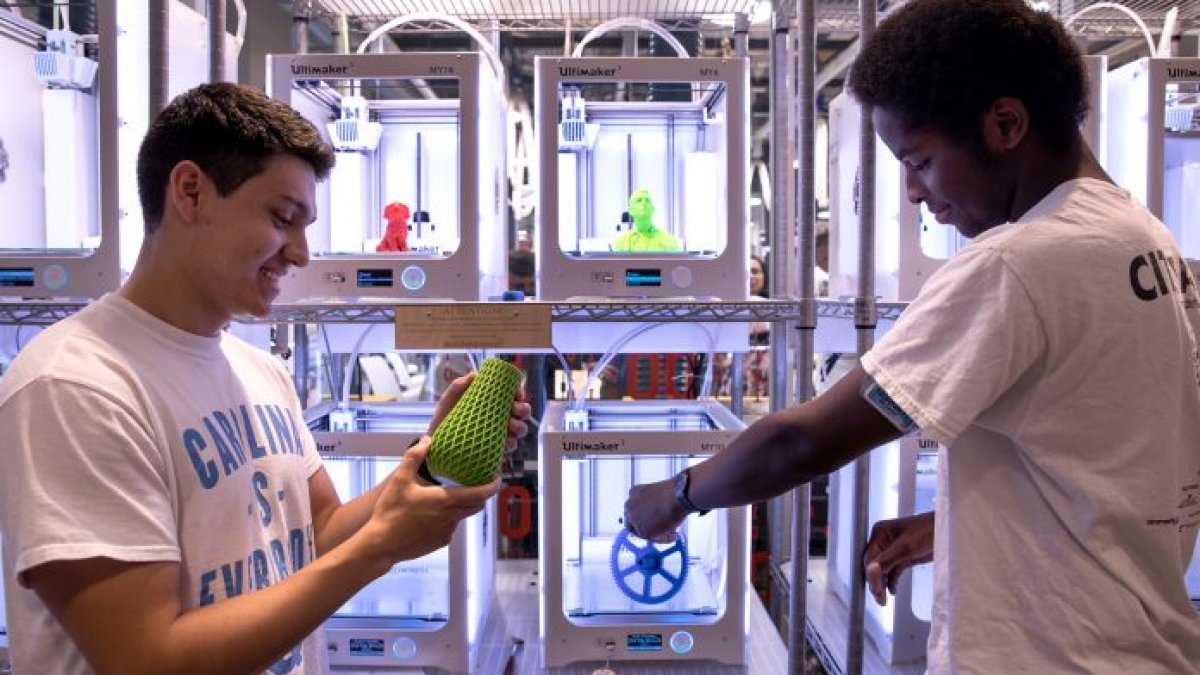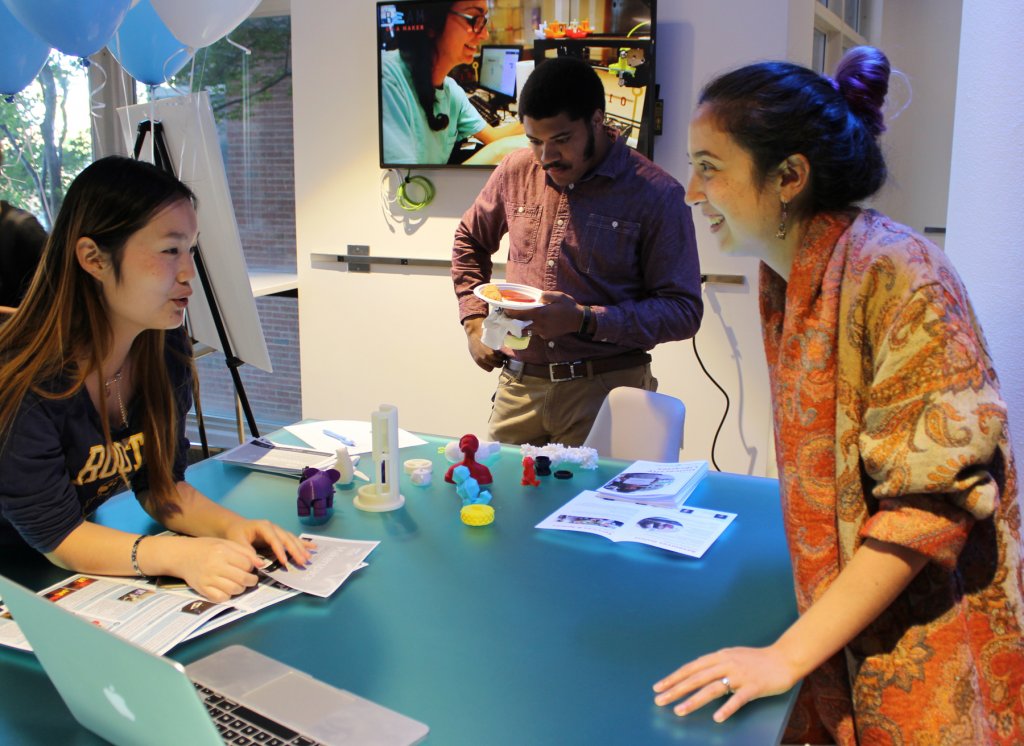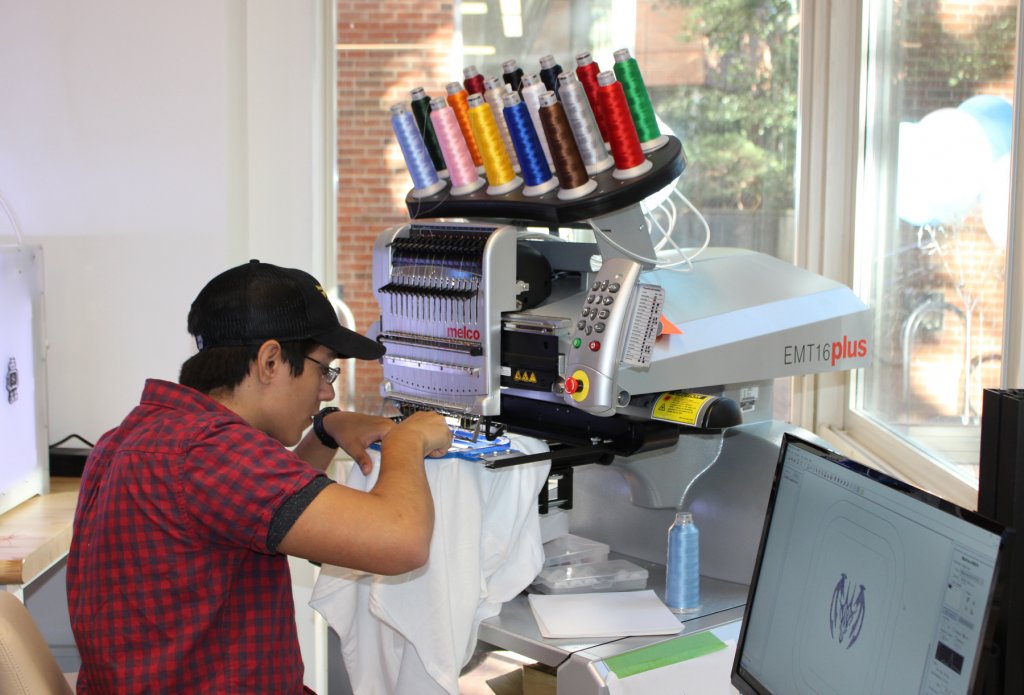Campus Makerspace Fosters Student Innovation at UNC
These students can manufacture in their dorms

Wake up. Go to class. Then 3-D print a prosthetic hand with some hallmates. That was a recent day’s plan for Anthony Schinelli, who lives in a dormitory at the University of North Carolina at Chapel Hill.
His residence hall includes a built-in “makerspace,” something more and more U.S. colleges offer. The spaces allow students to brainstorm ideas and build their inventions. Their efforts often evolve into small businesses.
As a first-year student, Schinelli, 18, has access to tools that can make just about anything. His dorm houses 24 cutting-edge 3-D printers, hand tools, textile machines and programmable electronics.
Schinelli says he spends “a fair bit of time doing 3-D modeling and designing things.” With no previous experience, he’s gotten certified on 3-D printers, which can manufacture complex things by “printing” layers of materials. He and his roommate hope to start small, by upgrading their room with 3-D printed accessories.

The top-tier public university they attend now has four on-campus facilities equipped with high-tech tools, and interest among students is exploding. So far, 2,000 students have learned to use 3-D printers and other machines. Faculty and staff members also use them.
University official Judith Cone sees there’s room to grow: She envisions a campus where makerspaces are as vital to students as libraries. Cone says campus officials visited new makerspaces at the Georgia Institute of Technology, or Georgia Tech, and other schools for inspiration.
While Schinelli works on science and entrepreneurship, he says that “it’s really cool to see everyone using the makerspace for their own projects,” noting that art students have made a 3-D model for a sculpture and chemistry students have made a 3-D molecular structure.

The dorm makerspace has already made a big impact on Schinelli, who takes part in its “residential learning program,” in which participants immerse themselves in entrepreneurship at their residence hall. They have pitch competitions, and guests from tech companies, innovative businesses and art venues drop by for informal talks.
He started school as a chemistry major, but the access to the makerspace has sparked his interest in biomedical engineering.
An older student introduced him to the Helping Hand Project, where student volunteers design and print prosthetic hands for children in need. Kids get to help with the design, and can get free replacement hands as they grow. Schinelli is inspired by the organization’s mission.
“Seeing how this stuff is made is really incredible,” he says. “I think it’s really going to boost the next generation of health care.”